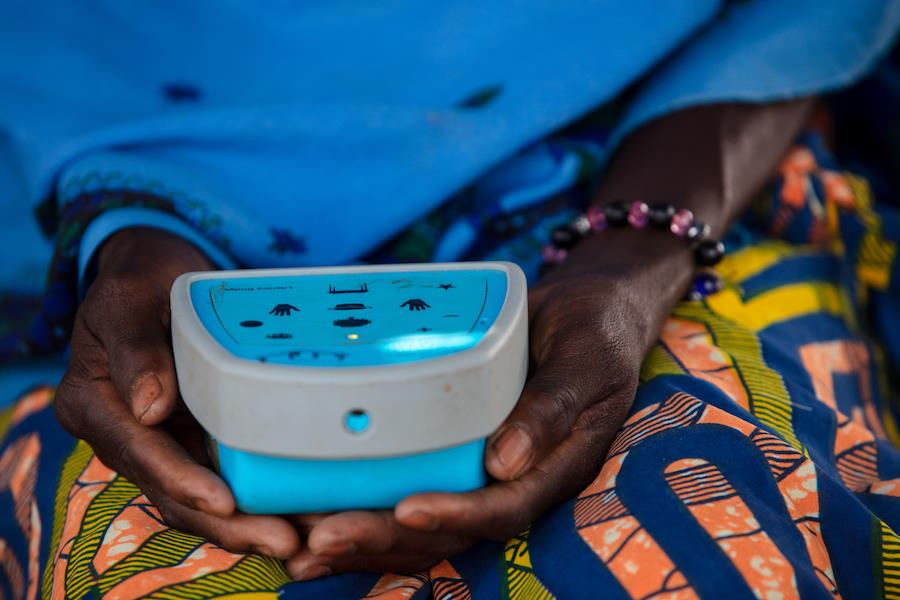Talking Books provide an innovative solution to reach rural communities in Uganda
Programme uses ‘talking book’ audio players to share knowledge on women’s land rights

© FAO
Dramatic dialogue, music and poetry are not the usual ways that the UN Food and Agriculture Organization (FAO) raises awareness of and sensitizes rural communities on women’s land rights, but an innovative project in Uganda is doing just that through so-called Talking Books. Talking books are audio devices that allow people with low or no literacy to receive training in a dynamic way.
In partnership with Amplio, a US based nonprofit social enterprise, the pilot project has adopted these easy-to-use gadgets to engage around 8,000 people, sharing stories and ideas on women's land rights and their benefits for households and communities.
The Talking Books were developed by Amplio to reach remote, under-served rural populations that are often bypassed by conventional development initiatives. Designed for people with limited access to the internet or electricity, the Talking Books can play several hours of carefully tailored audio content, work offline, and function with either rechargeable or conventional batteries.
Digital solutions for learning and engagement
"This initiative will shed light on how inclusive digital solutions can be powerful tools to promote social inclusion and empowerment in rural contexts, as well as innovative vehicles to drive social change and foster gender equality," highlighted Martha Osorio, FAO Gender and Rural Development Officer, who leads the initiative. "The Talking Books will motivate people to reflect on the gender dimension of land issues and discuss them, inducing through debates within households and whole communities."
